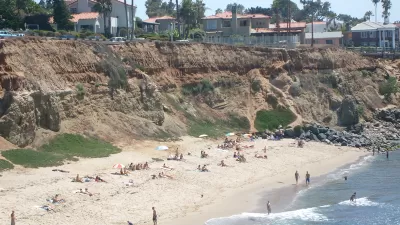Elhania v. Airbnb, Inc. will be the first case in the U.S. to hold Airbnb responsible for a shooting death that happened at a home rented through the platform, because the short-term rental violated local laws designed to protect from that type of harm.

A San Francisco Superior Court judge has overruled Airbnb’s request to dismiss a case brought against it by the parents of a teen who died in August 2021 after being shot at a party held in a Sunnyvale, California, home rented on Airbnb. According to an article from ACCESSWIRE, the case — Elhania v. Airbnb, Inc. — will be the first in the nation to potentially hold Airbnb legally responsible for a victim’s death from a shooting at an Airbnb party, which happen more often than one might assume. In the last 30 days, injuries and deaths from “shootouts” at Airbnb parties were reported in Utah, Alabama, Texas, and Georgia.
Until now, Airbnb has been able to dismiss the case by arguing it can’t be held liable because injuries at parties could not be foreseen and that they’re merely a platform connecting renters with property owners. So what’s making the case stick this time? The fact that Airbnb violated the local city ordinance regulating short-term rentals, which were specifically designed to protect the type of harm the 18-year-old Elias Elhania suffered. Those violations include the fact that the rental was an illegal short-term rental, the owner was not on site throughout the stay, and Airbnb rented the unit to an unaccompanied minor.
ACCESSWIRE reports, “Airbnb, in the oral argument, argued that because it conducts business in many cities, counties, and countries, all of which has [stet] different laws, it is impossible for Airbnb to determine what the law is or comply with it. Airbnb also argued that the local law regulating short-term rentals does not apply to Airbnb, only to the property owners.” The judge disagreed and ruled “that Airbnb can be held legally responsible … if the short-term rental violates a local ordinance that is designed to protect the public's health, safety, or welfare from disorderly conduct.”
As this case moves forward in court against Airbnb and the property owner, it will be one to keep an eye on, particularly as cities and counties across the United States struggle to enforce short-term rental rules to minimize the negative impact of the industry on local communities. Thus far, Airbnb has had little incentive to work with local governments to ensure short-term rental owners doing business through their platform are following local regulations. If they can be held liable for death or injury at short-term rentals from their platform that violate local ordinances aimed at preventing these threats to public safety, it could be a game changer.
FULL STORY: Airbnb Is Found by Court to Be Legally Responsible for Victim of Shooting at an Airbnb Party

Planetizen Federal Action Tracker
A weekly monitor of how Trump’s orders and actions are impacting planners and planning in America.

Restaurant Patios Were a Pandemic Win — Why Were They so Hard to Keep?
Social distancing requirements and changes in travel patterns prompted cities to pilot new uses for street and sidewalk space. Then it got complicated.

Maui's Vacation Rental Debate Turns Ugly
Verbal attacks, misinformation campaigns and fistfights plague a high-stakes debate to convert thousands of vacation rentals into long-term housing.

In California Battle of Housing vs. Environment, Housing Just Won
A new state law significantly limits the power of CEQA, an environmental review law that served as a powerful tool for blocking new development.

Boulder Eliminates Parking Minimums Citywide
Officials estimate the cost of building a single underground parking space at up to $100,000.

Orange County, Florida Adopts Largest US “Sprawl Repair” Code
The ‘Orange Code’ seeks to rectify decades of sprawl-inducing, car-oriented development.
Urban Design for Planners 1: Software Tools
This six-course series explores essential urban design concepts using open source software and equips planners with the tools they need to participate fully in the urban design process.
Planning for Universal Design
Learn the tools for implementing Universal Design in planning regulations.
Heyer Gruel & Associates PA
JM Goldson LLC
Custer County Colorado
City of Camden Redevelopment Agency
City of Astoria
Transportation Research & Education Center (TREC) at Portland State University
Jefferson Parish Government
Camden Redevelopment Agency
City of Claremont




























